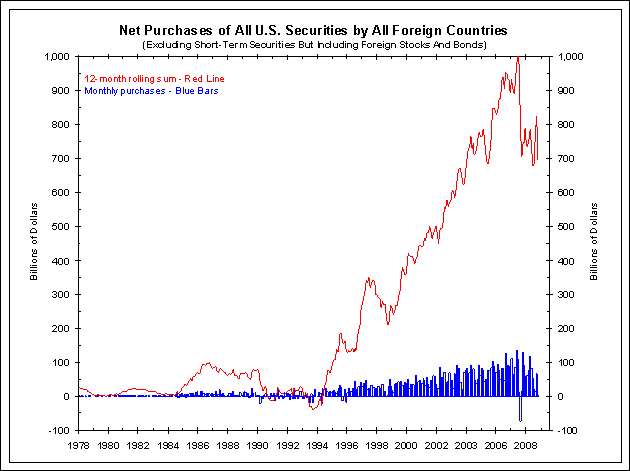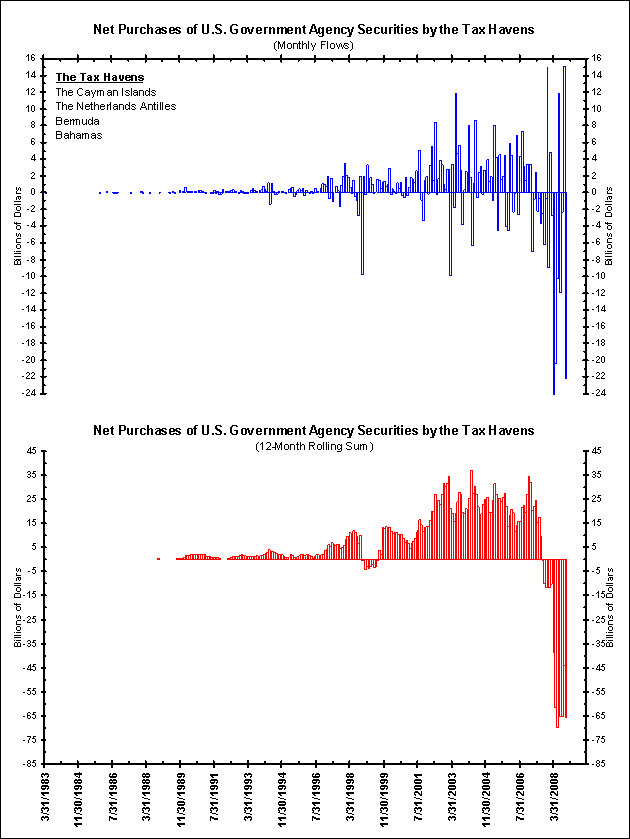- The Wall Street Journal – Crisis Pushed Foreign Investors Toward Treasurys
A global flight to safety sent foreign investors scrambling for short-term dollar-denominated assets in October, with buyers from around the world snapping up some $147 billion in Treasury bills as the credit crisis hit a peak. With global markets roiled by the fallout from the Lehman Brothers bankruptcy and the bailout of insurance giant American International Group Inc., foreign buyers shunned longer-dated securities including stocks and corporate debt, purchasing just $1.5 billion after buying $65.4 billion in September, according to monthly data published by the Treasury Department. “Net long-term capital flows to the U.S. declined sharply in October, as the global financial crisis reached a zenith and risk aversion became acute,” said Brian Bethune, chief U.S. financial economist at IHS Global Insight. “Sharp business-cycle downturns in Europe, Japan and emerging markets precipitated sharp drops in commodity prices and a severe global flight to quality,” he added.
Comment As the article points out, foreigners were only buyers of $1.5 billion of long-term U.S. securities in October. In the past 10 years, only August 2007, when foreigners were net sellers of $72.88 billion of U.S. securities, was worse.

<Click on chart for larger image>
The article continues to point out demand for agency securities dropped considerably in October. We addressed this in yesterday’s TIC Update, noting that the hedge funds of the tax haven countries were now large net sellers of agency debt:
If recent pains in the hedge fund world are going to drive foreigners away from agency securities, another group will have to step up their net purchases to offset any further losses should foreign ownership continue to fall.
Luckily, with the holidays upon us, the U.S. government has been in a charitable mood. The Federal Reserve’s November 25th announcement to purchase $100 billion of agencies should help make up for any lost interest from foreigners. However, as is the case with any of the medicated markets, this is at best a temporary fix.
